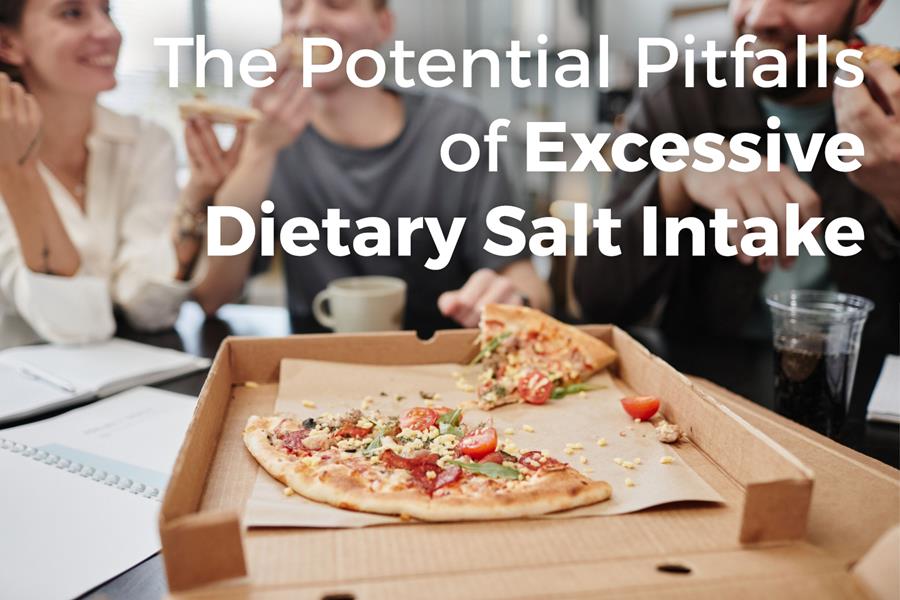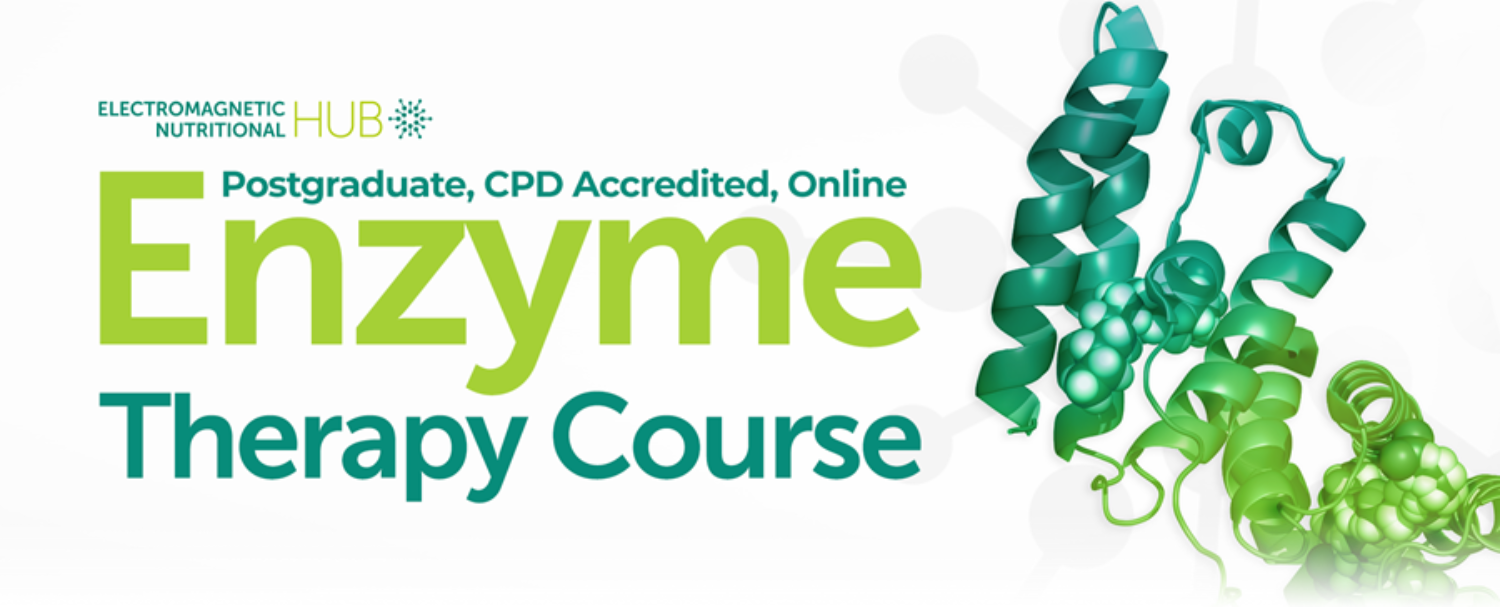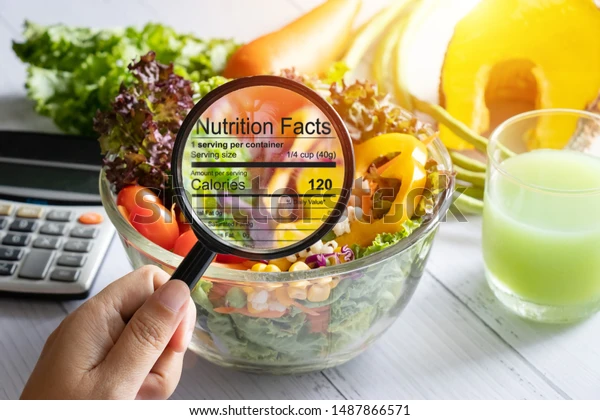Who would imagine that something as simple as salt could cause such confusion, debate, and potential health issues! Not least as you need sodium in your diet, yet there’s plenty of medical advice telling you to cut down on salt, so what’s behind these seemingly contradictory suggestions? Let’s go ‘below the salt’ on the topic, to sprinkle some common sense on this food ingredient and additive. Including which manufactured food ingredients you need to ‘take with a pinch of salt’ and how to balance salt consumption by using a natural alkaliser like potassium.

Who would imagine that something as simple as salt could cause such confusion, debate, and potential health issues! Not least as you need sodium in your diet, yet there’s plenty of medical advice telling you to cut down on salt, so what’s behind these seemingly contradictory suggestions?
Let’s go ‘below the salt’ on the topic, to sprinkle some common sense on this food ingredient and additive. Including which manufactured food ingredients you need to ‘take with a pinch of salt’ and how to balance salt consumption by using a natural alkaliser like potassium.
Salt v sodium
Before clarifying the risks of eating too much salt - and the ways to manage this essential dietary element - it's worth breaking down what salt crystals are. That may sound strange, but those tiny granules are possibly more complex than you imagine.
Here’s something you may not know - 0.4% of our body weight is salt. So, we have the same measure of salt in our makeup that seawater does.
Those are various kinds of ‘salts’. Including sodium chloride - which is the salt usually used for cooking and as a condiment. Other types of include sodium nitrate, an inorganic chemical compound commonly used as a preservative and flavour enhancer by food manufacturers.
That last point we will cover more later, as one of the most common misconceptions is that by avoiding table salt, you are being ‘healthy’ when in fact you are unconsciously eating other forms of sodium.
Our body’s need for sodium
What job does salt do in our body? There are diverse answers to that, including supporting such things as our nervous system, muscle movement and fluid balance. That’s because sodium is an electrolyte - one of the minerals with an ‘electrical charge’ that triggers key bodily functions.
When our electrolytes are low or out of kilter, one of the most common symptoms is lack of energy.
Have you ever suddenly craved salty foods, especially after exercise?
We lose sodium through sweat and urine. So, we need to constantly replace it. If we don’t have enough, it can create serious medical issues including dizziness, twitching muscles and eventually a brain condition called hyponatremia, which brings seizures and loss of consciousness.
How much salt do we really need in our diet? Here’s the thing – we only need a small amount of sodium to replenish our body’s levels (unless we have sweat a great deal). The recommended daily salt intake is less than a teaspoon (6g). Recommendations for children are much lower, of course.
That is the target for salt which is both sodium and chloride (table salt). The RDA for sodium alone is 2.4g.
Reasons to limit salt intake
We can easily consume too much salt - and as soon as we get over 6g a day regularly it becomes a health risk Research in the USA showed that an alarming 90% of children aged over two, young people and adults, are regularly eating too much sodium.
The immediate effects of eating too much salt can be dry mouth and increased thirst.
To some degree, our bodies get rid of excess sodium via our kidneys. One way they achieve this is by holding back fluid to help flush it away. That means another short-term symptom of too much salt is water retention and bloating.
However, if for any reason your kidneys are sluggish or ineffectual – or you regularly make their workload too overwhelming – too much salt in our system increases blood pressure and becomes hypertensive. Hypertension then increases the risk of heart disease and strokes.
This chain of events sums up the health risks of too much salt. on a regular basis. It can lead to premature death.
Also, genetics and hormonal balance can make some people more sensitive to salt than others and ageing and being overweight make high blood pressure even more dangerous.
Can too much salt cause cancer? There are studies which indicate a link between sodium intake and an increased risk of stomach cancer. This needs a great deal more research, but one theory is that sodium-rich diets cause inflammation and damage to the stomach’s lining.
Can you have a salt overdose?
Television dramas sometimes feature poisoning by salt, and as shown above, sodium-rich diets can lead to fatal medical conditions. However, salt overdoses are very rare as you would have to eat a great deal to be in immediate danger. Though clearly anyone with kidney disease or existing blood pressure or heart challenges, can put themselves at risk by overeating salt.
Mining salt’s presence in food
Unfortunately, it’s easy to slip into consuming too much salt regularly due to sodium being used as a preservative or flavour enhancer.
You may immediately think of things such as bacon and salty snacks as temptations to go ‘overboard’. However, salt is an often-overlooked ingredient in many household staples. Such as bread, cheese, pre-cooked meats, stock cubes, tinned soups, ready-to-use sauces, breakfast cereals and sausages. Even healthy options such as seafood can be high in salt, putting you over the limit if you don’t control portion sizes.
Did you know that some dissolvable vitamin supplements and painkillers also contain 1g of salt per tablet?
That vividly demonstrates why food supplement quality matters so much.
Sodium and potassium interaction
You can regularly go over the recommended salt intake level even when you believe you have a healthy diet, but there are vital reasons to consume a controlled amount of sodium. To get the balance right, it helps if you understand another key ‘salt of the earth’ nutrient – potassium.
Potassium – found in vegetables, fruit, seafood, and dairy foods - is also an electrolyte that works hard to support how our bodies operate.
The sodium-potassium pump is the scientific term for an enzyme in all our cells, that performs key tasks such as balancing our body’s fluid levels.
This connection between sodium and potassium is also known as an ‘inverse’ relationship. If we have too much sodium, our potassium level decreases, and vice versa. An incorrect balance between the two can create symptoms such as muscle cramps or weakness, digestive issues, frequent weeing, dehydration, low blood pressure, confusion, changes in heart rhythm and mood and not feeling refreshed on waking.
Logically, if you are concerned you have too much sodium in your system, you could increase the amount of potassium in your diet to restore balance. In fact, a potassium-rich diet may even have the potential to offset the risk of high blood pressure from too much salt.
This is a way to alkalise your cells. It is also one of the many benefits of juicing mineral-rich vegetables. Though you could use potassium supplements to support your sodium-potassium pump too.
Tips on getting well managed salt intake
One often instinctive way to restore your body’s balance after a salty meal or snack is to drink more water. However, it is better to keep your intake below 6g a day consistently.
The most obvious and urgent way you can reduce salt in your diet – and ensure you get good quality bioavailable minerals - is really simple. Cook meals from scratch, using fresh ingredients high in potassium and low in sodium.
If possible, source these locally, including fruit and vegetables currently in season in the UK (so you know they are not brought in from overseas), this is good for you and the planet.
Avoid processed and especially ultra-processed foods, particularly ones like pre-cooked meats and ready meals with added sodium nitrates.
We provide more insights on the dangers of ultra-processed foods elsewhere in our online nutritional resources.
The bottom line though is that global warnings about high-sodium intake can’t be ignored. It is time to get back to basics, with fresh ingredients and meaningful supplements to fill any gaps.




